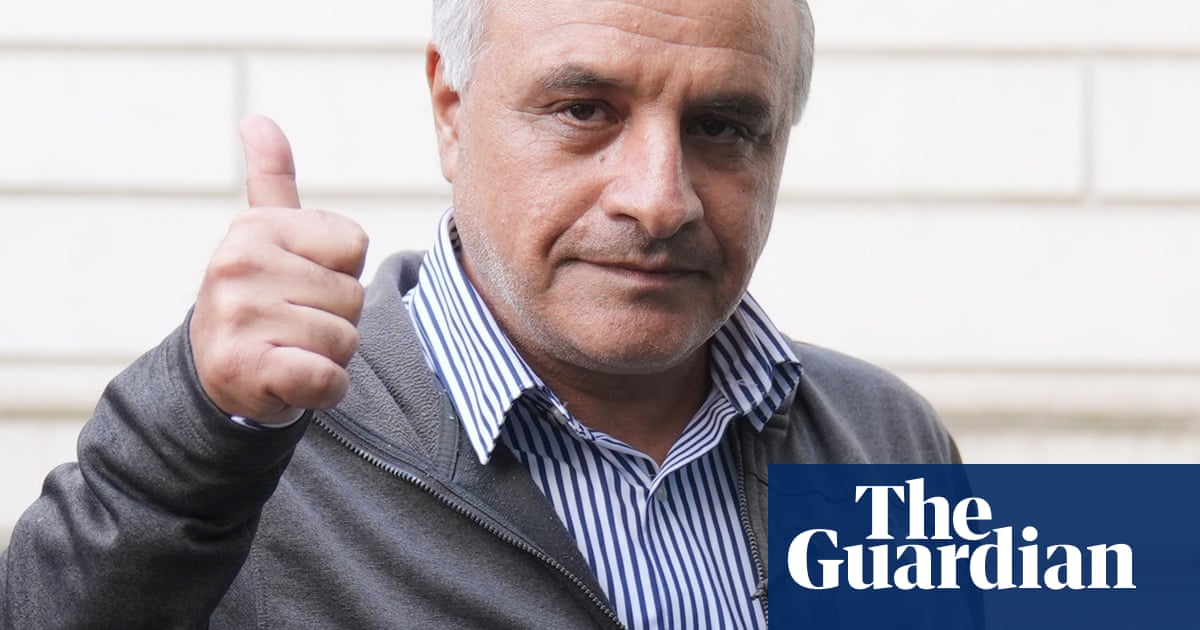Prosecuting a man for burning the Qur’an is “tantamount to reintroducing a blasphemy law” in Great Britain, a trial has heard.
Hamit Coskun, 50, shouted “fuck Islam”, “Islam is religion of terrorism” and “Qur’an is burning” as he held aloft the burning Islamic text outside the Turkish consulate in Rutland Gardens, Knightsbridge, London, on 13 February, Westminster magistrates court heard.
Coskun denies a religiously aggravated public order offence of using disorderly behaviour “within the hearing or sight of a person likely to be caused harassment, alarm or distress”, motivated by “hostility towards members of a religious group, namely followers of Islam”, contrary to the Crime and Disorder Act 1998 and the Public Order Act 1986.
He also pleaded not guilty to an alternative charge of using disorderly behaviour “within the hearing or sight of a person likely to be caused harassment, alarm or distress”, contrary to section five of the Public Order Act 1986.
At his trial on Wednesday, Katy Thorne KC, defending, said: “The prosecution, in bringing this prosecution at all, is seeking to introduce a law unknown to this land, namely blasphemy in relation to Islam.”
Blasphemy laws were abolished in England and Wales in 2008 and in Scotland in 2021.
In Northern Ireland, blasphemy laws date back to the early 19th century and, while rarely used, blasphemy and blasphemous libel remain offences.
Coskun, giving evidence via a Turkish interpreter, told the court that he has the “right” to criticise Islam but said that he does not like using swear words.
Thorne said that burning the Qur’an “cannot be a criminal offence” and accused the Crown Prosecution Service of an abuse of process in its decision to bring the case against Coskun.
She said in her written argument: “To render such an act a criminal offence is tantamount to reintroducing a blasphemy law in relation to Islam, rendering the Qur’an a specially protected object in the UK, where a flag or another book would not be, and rendering trenchant or offensive criticism of Islam a criminal offence, is also akin to reinstating an offence of blasphemy.
“People must be free to exercise their religious or non-religious beliefs and to manifest those beliefs in whatever non-violent way they choose, and any curtailing by the state of that freedom must be absolutely necessary in a democratic society.”
Thorne said that Coskun “did not exhort hate” but voiced his dislike and frustration with a religion.
She added: “He expressed nothing to suggest that he was hostile to those who followed Islam.
“He did so outside the Turkish Consulate, a political institution, which provides further evidence he was not seeking to persuade others to dislike Islam, but express his personal criticism of Turkey and its stance on Islam.
“His protest was specifically political and thus, it is submitted, requires the highest protection of freedom of speech.”
Prosecutor Philip McGhee said that Coskun was not being prosecuted simply for the burning of the Qur’an, but for “disorderly conduct”.
McGhee said of Thorne’s argument: “There is simply no misconduct in this case.”
District Judge John McGarva ruled that there was no abuse of process and dismissed the application.
McGhee added that the decision to prosecute does not affect the ability of others to criticise religion. The prosecutor had earlier said that Coskun had deliberately chosen the time and location of his demonstration.
He went on: “His actions gave rise to a very clear threat to public order and went beyond a legitimate expression of protest, crossing the line to pose a threat to public order.”
Turkey-born Coskun, who is half-Kurdish and half-Armenian, travelled from his home in the Midlands on 13 February and set fire to the Qur’an at about 2pm, the court heard.
Coskun had posted on social media that he was protesting against the “Islamist government” of Turkish president, Recep Tayyip Erdoğan, who the defendant allegedly said “has made Turkey a base for radical Islamists and is trying to establish a sharia regime”, prosecutors said.
Coskun, who is an atheist, believes that he protested peacefully and burning the Qur’an amounted to freedom of expression, the court heard.
Ahead of his trial, in a quote released through the Free Speech Union, he said: “Encountering such treatment in a country like England, which I truly believed to be a place where freedom prevailed, was a real shock to me.”
His legal fees are being paid for by the Free Speech Union and the National Secular Society.
The Free Speech Union said it is defending him “not because we’re anti-Islam, but because we believe no one should be compelled to observe the blasphemy codes of any religion, whether Christian or Muslim”.
The prosecution and defence have finished their cases, but a further hearing will take place on Thursday afternoon, with a verdict likely to come on a later date, the court heard.
